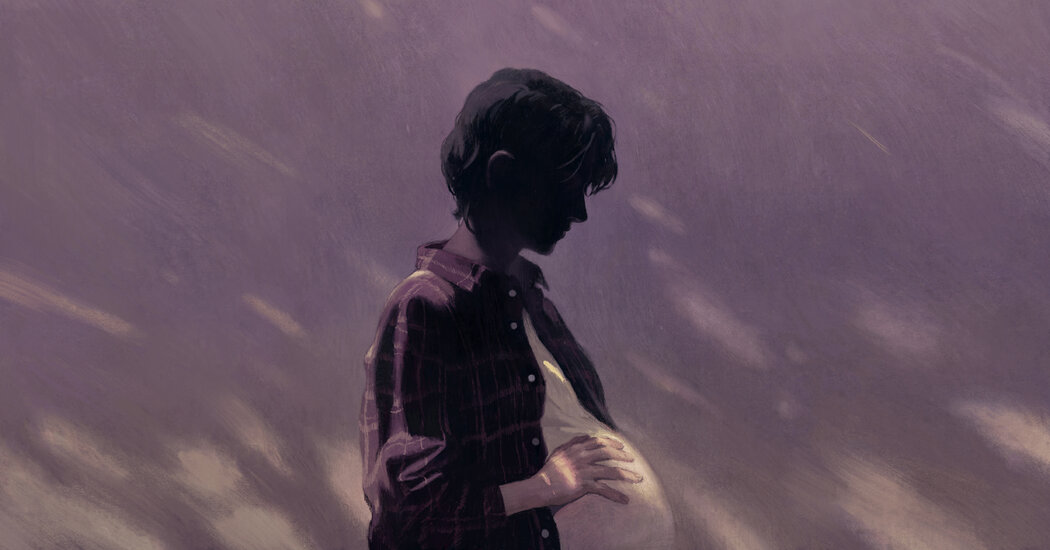

But it’s not about the yes/no of a child’s existence; it’s about what kind of life the child will have, and what kind of life the family will have together. I do this work because, in light of who my children are, and how deeply I love them, I understand and celebrate the importance of wanting to give your children the best parent they could possibly have. When I help someone get an abortion, or even help someone think about abortion in a new way, I’m going back, choosing an alternate future and affirming the worth of that concept itself: It does make a difference to wait, to grow, to mature, to decide.
I had two abortions after my children were born, and I don’t regret those abortions or think about who those people would have been. I also realize that if I had continued those pregnancies, I would have loved those people. But my life would have been harder and I would have lost more of myself, because people don’t have unlimited resilience. If I imagine the counterfactual, I can say I have strong and loving relationships with both of my children now in large part because I didn’t have those other children.
Of course I’ve agonized about publishing this essay, because I don’t want to hurt my son. But I wrote it because I want to get at the falsity of that very correlation: It was traumatic for me to become a mother when I did, and I want to be able to acknowledge that openly, without that acknowledgment’s operating as some kind of hex on my son’s life. Our reductive and linear frameworks around abortion, and our very understanding of what it is, force a zero-sum choice between the idea that it’s hard to become a parent if you don’t want to and the idea that a child is an absolute good. We insist that if a child is an absolute good, then becoming a parent must also be, by retroactive inference, always and only an absolute good. I want to report from the other side of a decision many people make and say: Yes, it can be true that you will love the child if you don’t have the abortion. It’s also true that whatever you thought would be so hard about having that child, whatever made you consider not having a child at that point in your life, may be exactly as hard as you thought it would be. As undesirable, as challenging, as painful as you feared.
It has been so hard to decide to say these things, but I have to stand up for my 19-year-old self. I didn’t abort the pregnancy I didn’t plan, but I did have to abort the life I imagined for myself. It cost me a lot, to carry an unintended pregnancy to term, to have the baby, to live the different life. All I’ve been able to do is try to make sure I paid more of the cost than my son did, but he deserved better than that.
There’s a spectacular poem in “Cries of the Spirit” that I’m sure I was scared of when I was 19. If I read it in my preparation for that class, I would have turned the page quickly. It’s Gwendolyn Brooks’s most beautiful, most unflinching, most truth-telling “the mother”:
Abortions will not let you forget.
You remember the children you got that you did not get,
The damp small pulps with a little or with no hair,
The singers and workers that never handled the air.
You will never neglect or beat
Them, or silence or buy with a sweet.
You will never wind up the sucking-thumb
Or scuttle off ghosts that come.
You will never leave them, controlling your luscious sigh,
Return for a snack of them, with gobbling mother-eye.
If I could go back to my young self, be with her in that bathroom stall in the Biblical Studies Building, it’s not as though I would tell her to have an abortion. I would never give my son back, for anything, but I would certainly give him a different mother. The young woman standing there was not ready to be a parent, and didn’t want to be a parent. There’s not much I could offer her. I wouldn’t give her the harsh version — I’m sorry, did you think you would get to live the life you wanted to, whatever life you imagined? That’s not what life is — but what could I say to her instead?
Yes, your son is coming, and having a baby now will break your life. The breaking of your life will also give your life back to you, in many ways, but you won’t really understand that for 20 years. You won’t get the guidance and support you need right now, but when your kids are this age that you are, facing the beginning of adulthood, they will trust you and listen to you, so maybe they will never have to feel this pain. This is your life, and these are the words of a woman.
Merritt Tierce is a writer from Texas and the author of the novel “Love Me Back.” She wrote for the last two seasons of “Orange Is the New Black,” and received a 2019 Whiting Award in fiction.
